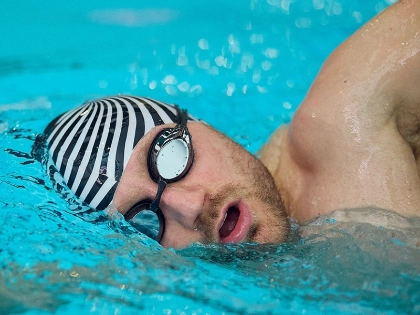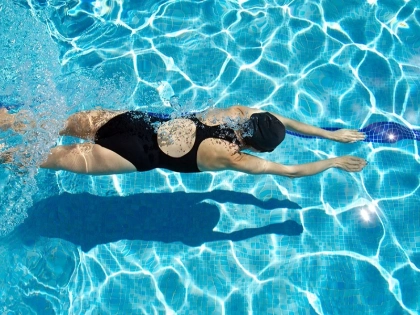A swimmer's timing is very important, and it is very thrilling when they finish first in their events. It's a fantastic incentive to focus on time management skills!
That's a verb.

The simple verbs swim and sail can be used to express both swimming and sailing. Nonetheless, you should employ the verbs go + ing to show that you will be participating in the action in some way. Saying "I'm going to swim in the river this weekend" is one example of what you can say. It is not the same as stating, "I'm going to see Ann."
Sometimes a swimmer will hear someone else say something incorrectly, like, "I've swum all five of the Great Lakes." The use of swim's past participle rather of its simple past tense renders the sentence improper. Grammarians believe this construction to be improper, so it's usually best to avoid using it in written or formal speech. Additionally, it goes against the origins of irregular verbs, which typically consist of the past participle with a had or had form. In general, most languages—including English—abide by this norm.
That's a noun.

The idiom "go swimming" is not formal; rather, it is a colloquialism referring to recreational swimming. You would use a simple verb, like swim or sail, to indicate your formal purpose to swim. For instance, while driving past a picturesque lake with a friend, one of you might remark to the other, "I've swimmed in that lake before." This usage will make sense to swimmers, but not to non-swimmers.
That's a pronoun.

Swimming takes a lot of practice and is not a recreational pastime. While non-swimmers view swimming as a lighthearted way to pass a Saturday afternoon, swimmers are well aware that it requires strength, endurance, and expertise. It is a regular aspect of their lives as well. Therefore, it's crucial to avoid saying phrases like "I go sailing" or "I do swimming" if you are a swimmer. Use the verb's -ing form and basic verbs instead.
Although this may be heard in informal writing or dialect, it is incorrect linguistically. The past participle of the verb—in this case, swum—plus a form of have are combined to make the perfect tenses. The conventional norms of inflection for irregular verbs are not followed in this construction, which may cause grammar nerds to take offence.
It is a preposition.

Swimming is a sport that calls for endurance, strength, and skill. It requires years of practice and is not something that anybody can accomplish easily. Still, a lot of people who aren't swimmers consider swimming to be a recreational sport. They may think that swimmers like to sail on the weekends or that they spend hours each week floating about an inflatable pool. These false beliefs carry a risk of harm and injury. Swimmers must be able to properly talk about their sport.
For instance, a person on a road trip might mention to a companion that they have swum in a beautiful lake while pointing it out. This usage is incorrect since swim is in the past tense, not the past participle, when it is swum. In casual conversation, it is appropriate, but in formal writing, it is improper.
Advertisement
Recommended Reading: Is Fried Potatoes Nutritious?
























Comments
Leave a Comment
Your email address will not be published. Required fields are marked *